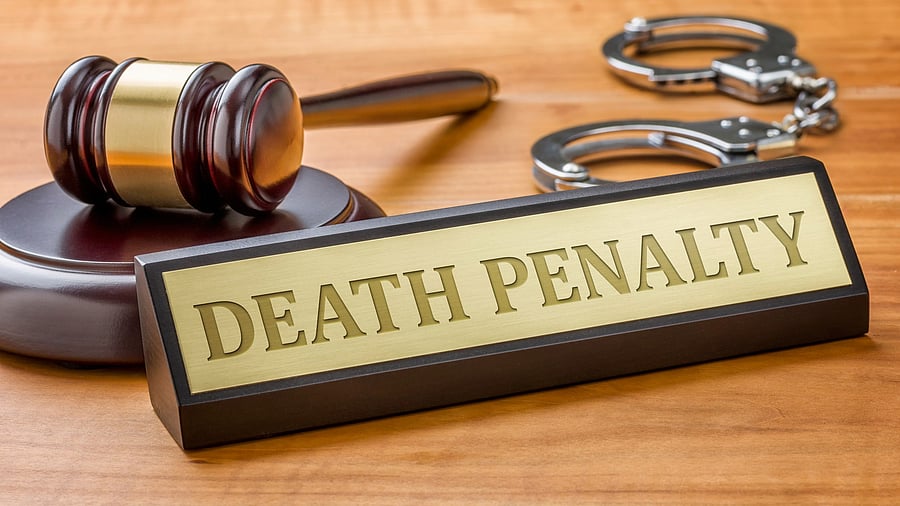
Representative image showing 'death penalty' written on a plate
Credit: iStock Photo
New Delhi: The Supreme Court on Wednesday dismissed the Centre's application for laying down victim and society-centric guidelines in heinous offence cases where death penalty was awarded.
The matter came up for hearing before a bench of justices Vikram Nath, Sandeep Mehta and N V Anjaria.
"We do not find any merit in this MA (miscellaneous application)," the bench said while dismissing the plea.
The Centre had moved the application in the top court in January 2020 and contended that the prevalent guidelines were only accused and convict-centric.
On January 31, 2020, the apex court agreed to examine the application and sought responses from various stakeholders, on whose petition the top court in 2014 laid down guidelines relating to the execution of death row convicts.
The guidelines were laid down in Shatrughan Chauhan versus Union of India case in 2014.
The top court had made clear in January 2020 that the issue of conviction and sentence connected with the Shatrughan Chauhan case would not be altered while dealing with the Centre's plea.
The Centre had argued that death penalty was awarded in cases which shake the collective conscience of the court.
The top court had said the 2014 case had attained finality as both the review and curative petitions were already dismissed.
"There is no time limit for availing the legal and constitutional remedies available to a death row convict. The court should now take into account the interest of victim and society and lay down the guidelines which are in furtherance of the already laid down guidelines for the accused," the Centre had argued.
It had filed the application saying convicts of heinous crime were taking the "judicial process for a ride".
The Centre had urged the top court for fixing a seven-day deadline for execution of condemned prisoners after issuance of black warrant, amid the then delay in the hanging of the four death row convicts in the 2012 Nirbhaya gangrape-murder case.
The hanging in that case was delayed due to filing of review, curative and mercy petitions over a period of several months.
Seeking modifications of directions issued in 2014 in the Shatrughan Chauhan case, the Centre had said, "All the guidelines provided...are accused-centric. These guidelines, however, do not take into account an irreparable mental trauma, agony, upheaval and derangement of the victims and their family members, the collective conscience of the nation and the deterrent effect which the capital punishment intends to make."